Scheduling ERP Processes
Batch processes have been with us since the inception of business computing. You can complete a batch of tasks as a single process for sake of efficiency. The benefits of such processes are clearly time-saving for an Epicor administrator. Batch processing allows for the automation of many tasks that would take an actual user an immense amount of time and effort to perform in order to accomplish the required manual tasks and calculations. In ERP software, the Materials Requirements Planning (or MRP) process is probably the most well known of such processes. As ERP systems have become more advanced, the need to group multiple processes to operate in harmony has become increasingly important.

Epicor Process Bundling
In an Epicor context, there are many processes that you might want to sequentially bundle, such as following up an MRP regeneration by running the production planning and the shop schedule load graph processes, such that you can see the implication of the MRP run on material shortages and shop load respectively.
Sounds simple enough, but the problem with this scenario comes with the fact that such processes often run in the wee hours of the night, and only the most zealous members of the ERP fandom would wish to set their alarms for 3:00 AM so they can manually kick off a few ancillary processes once the MRP regen completes.
Enter Epicor’s Process Set Maintenance. Epicor process sets allow Epicor admins to bundle process runs into a single event. This allows you to sequentially run a suite of Epicor processes automatically, without human intervention. Process sets can include various differences:
- processes
- reports
- executive queries
Once a process set is defined, and then attached to a system agent schedule, the related tasks are automatically processed according to the timing defined by the system agent.
Let’s look at a common issue, one that surfaces frequently for an Epicor admin. At times, you may wish to run processes in a manner that filters the actual processing. For instance, you may wish to run MRP by site, or PO suggestions according to a handful of part classes. Confusion is commonplace in handling process sets when the processes involved possess filtered activities. I’ll give you an example of the problem and an explanation of the actual behavior an Epicor admin can expect to experience when setting up and executing a process set.
Epicor Process Set Maintenance With Process Filters Enabled
Creating a process set occurs through the Process Set Maintenance screen. Once a process set is defined, individual processes can be assigned to a process set. In the example below, I created a process set:
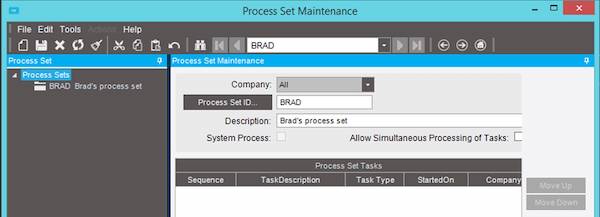
Next, I opened the PO Suggestion screen and configured its process parameters. Of those parameters, I set a site-specific filter:
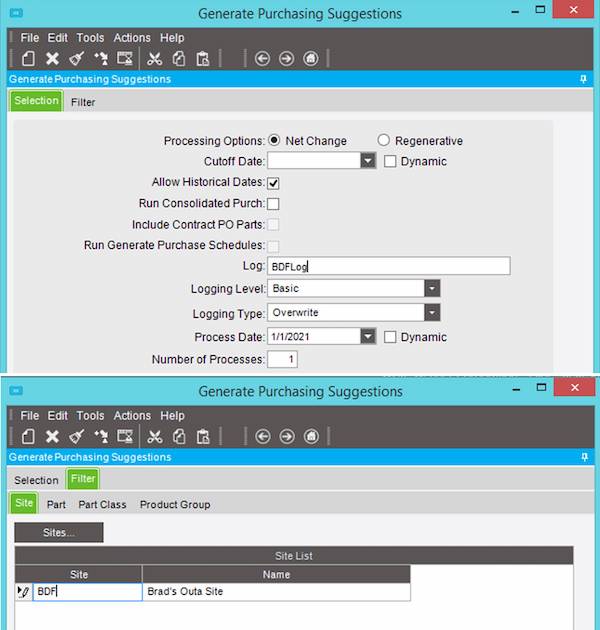
Then I clicked the icon below to save the PO Suggestion process to the process set I previously created:
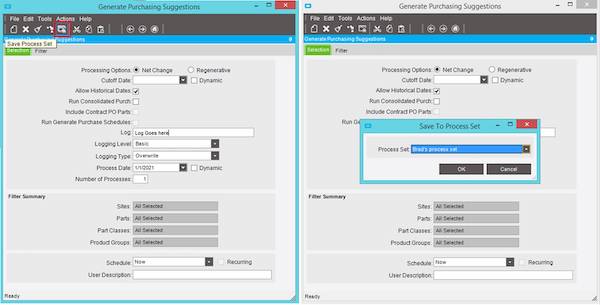
Returning to my original process set, I now see that the PO Suggestions process has been attached to the process set. Were I to go through the same actions with other processes, I could add multiple processes to this process set, and then use the “Move Up” and “Move Down” buttons to order them appropriately. But one point of confusion exists here. If I were to double-click on the process that I just added, to review its properties, the filter that I previous defined is no longer visible:
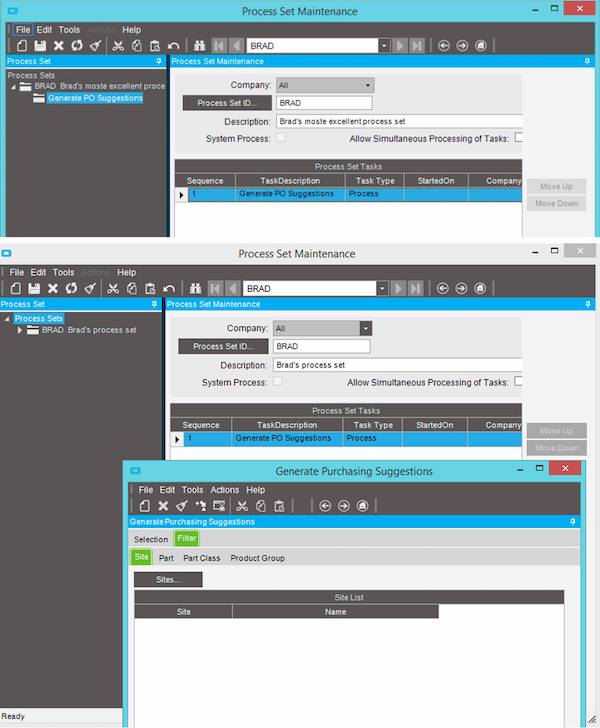
As we will see, this cosmetic issue is not detrimental to the actual execution of the processes themselves. To complete the setup of a process set, you need to assign it to a System Agent Schedule. This is accomplished through the Schedule Process Set screen. From this screen, you can select the Process Set:
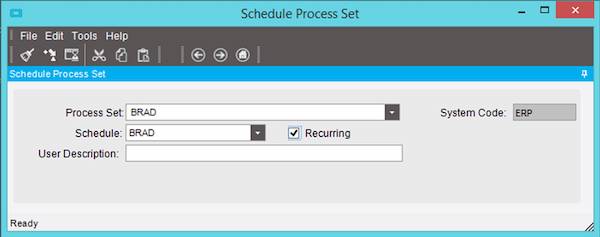
Allowing the System Agent schedule to run according to its next run time, I can see in the Epicor System Monitor that the underlying process ran successfully:

Looking at the Log File related to the PO Suggestions run, I can see that the PO Suggestions process ran according to the filter that I had initially set. As you can see, the log file indicates the Epicor site that I had defined:
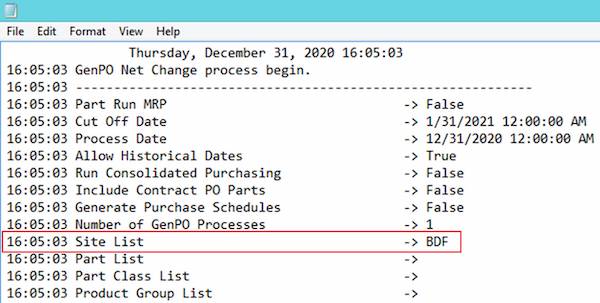
Epicor Admin Automation
In summary, while it may appear that an Epicor process loses its configured filters when added to a process set, in actuality, these parameters are retained, allowing the Epicor Admin great flexibility in automating a variety of ERP system activities.
Epicor Consulting? Epicor Managed Hosting?
Get advice from an ERP consultant or managed IT specialist. Chat with us to get a free ERP consultation or technology assessment.

